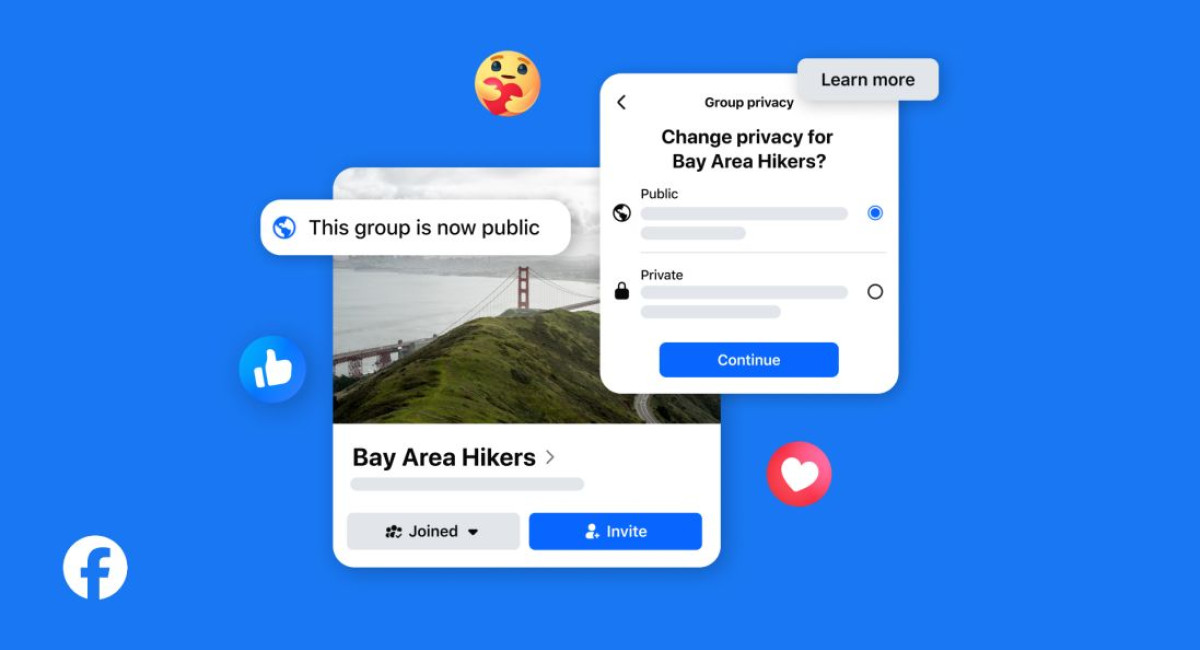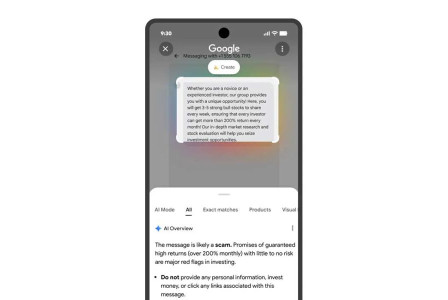SEARCH
Facebook Groups go public without sacrificing member privacy

SHARE IT
Meta has unveiled a major update to Facebook Groups that changes how communities can grow on the platform. Starting this week, group administrators will be able to switch their private Facebook Groups to public without compromising the privacy of their members or exposing older content. The move aims to make it easier for growing communities to reach broader audiences while maintaining user trust and data protection.
For years, group admins on Facebook have faced a common dilemma: should they keep their group private to safeguard member discussions, or make it public to attract new participants? Many begin with private settings, assuming their group will stay small and intimate, only to later discover a desire—or a need—to expand. Until now, that meant starting an entirely new public group from scratch, leaving behind all existing conversations and community history. Meta’s new update eliminates that barrier.
According to Meta, the new feature allows admins to change a group’s privacy status directly through its settings page. Once an admin initiates the switch from private to public, all other admins receive a notification and have a three-day review period to approve or cancel the conversion. This safeguard ensures that no single admin can unilaterally alter a group’s privacy level without consensus.
One of the most important aspects of the update is how Meta handles historical content. When a group transitions to public status, all pre-existing posts, comments, and reactions will remain private and accessible only to current members, admins, and moderators. The member list, too, will remain hidden from public view, continuing to protect the identities of users who joined under private settings.
Meta emphasized that the privacy of members is at the core of this change. Current members are notified when the transition occurs and are reminded again the first time they post or comment after the group becomes public. This dual-notification approach ensures transparency and gives members a chance to make an informed decision about whether they want to remain part of the newly public space.
Once a group becomes public, all new posts, comments, and reactions will be visible to anyone — even to people who are not logged into Facebook. This means public groups will now have greater visibility outside the platform, as their content can be indexed by search engines like Google. The change could help Facebook Groups surface in web search results, potentially driving new engagement and growth for communities that rely on visibility to thrive.
The update represents a balancing act between expansion and privacy. Meta has been gradually refining how Facebook Groups function, positioning them as the platform’s core tool for community building. This latest adjustment reflects Meta’s recognition that many online communities evolve over time — what begins as a small, private circle of users may grow into a valuable public forum for discussion, education, or support.
From a technical perspective, Meta has implemented several measures to prevent data leaks during the transition process. Only content created after a group becomes public will be visible to the wider audience, while historical data remains securely contained within the original member circle. Admins and moderators continue to retain full control over moderation tools, including the ability to manage posts, approve membership requests, and enforce community guidelines.
Importantly, Meta has also confirmed that the process is reversible. If a group’s admins later decide that the public setting no longer suits their community, they can switch it back to private. This flexibility allows group leaders to experiment with visibility without fear of permanently exposing private discussions or user information.
By introducing this capability, Meta is addressing one of the most persistent challenges in Facebook’s community ecosystem: how to balance growth with trust. Over the past few years, privacy and transparency have become critical themes for the company, following growing scrutiny over how social platforms handle personal data. The new group settings signal Meta’s attempt to provide more nuanced control to its users — letting them decide how public they want their digital spaces to be, and when.
For creators, small businesses, and community managers, this update could prove transformative. Groups that once operated in private settings can now open up to the world without losing their roots. Activist networks, local communities, hobbyist forums, and support groups can maintain confidentiality for their past interactions while still expanding to reach a global audience.
MORE NEWS FOR YOU

 Help & Support
Help & Support 

